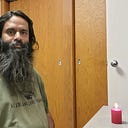CoreDump: Sustainability
Dump: 05.24.2024.09.43.IST.AM
Gecko: Hello, tech enthusiasts and sustainability warriors! Welcome to another episode of CoreDump, the podcast where we look at the latest and greatest in technology and sustainability. I’m your host, Gecko, and today we have a special guest joining us — Putty, the mascot of the circular economy!
Putty: Hi everyone! It’s great to be here with you, Gecko. I’m excited to talk about how the freedom of choice is driving true sustainability!
Gecko: Absolutely, Putty! Today, we’re diving into the sustainable grid, bionaphtha crackers, downstream technologies, and vegan food. It’s a smorgasbord of green innovation! So, let’s get started. Putty, can you tell us a bit about the sustainable grid?
Putty: Sure thing, Gecko! The sustainable grid is all about integrating renewable energy sources like solar and wind into our power systems. It’s a crucial step towards reducing our carbon footprint. Did you know that as of 2023, over 20% of the electricity generated in the USA comes from renewable sources? That’s a significant increase from just a decade ago.
Gecko: That’s impressive! And it shows how the freedom to choose renewable energy is really making a difference. Now, let’s talk about bionaphtha crackers. This sounds like something out of a sci-fi movie. What exactly are they?
Putty: Bionaphtha crackers are indeed fascinating, Gecko. They’re used to convert bionaphtha — a renewable feedstock derived from organic materials — into ethylene, propylene, and other essential chemicals used in the production of plastics and other materials. It’s a way of creating these vital chemicals without relying on fossil fuels. In 2023, global bionaphtha production reached approximately 3 million tons, highlighting the growing shift towards sustainable chemical processes.
Gecko: Wow, that’s a significant amount! And it’s a game-changer for industries that rely on these chemicals. Moving downstream, how are these technologies impacting other sectors?
Putty: Downstream technologies are seeing a revolution as well. With the shift to renewable feedstocks and cleaner processes, industries are not only reducing their environmental impact but also improving efficiency and cost-effectiveness. This trickles down to consumer products, making them greener and more sustainable. For instance, sustainable packaging and biodegradable materials are becoming more common, thanks to these advancements.
Gecko: And speaking of consumer choices, let’s talk about vegan food. It’s another area where people are exercising their freedom to choose sustainability. What can you tell us about the current trends in vegan food consumption?
Putty: Vegan food is booming, Gecko! More people are recognizing the environmental and health benefits of plant-based diets. In 2023, the global vegan food market was valued at around $15 billion, and it’s projected to grow significantly in the coming years. In the USA alone, nearly 10 million people identify as vegan, which is a major leap from previous years.
Gecko: That’s incredible, Putty. It’s clear that consumers are making more sustainable choices across the board. The sustainable grid, bionaphtha crackers, downstream technologies, and vegan food are all interconnected in this green revolution. And with the freedom to choose, individuals are driving the change towards a more sustainable future.
Putty: Absolutely, Gecko. Every choice counts, and together, we can make a huge impact. Whether it’s choosing renewable energy, supporting sustainable industries, or opting for a plant-based meal, every step moves us closer to true sustainability.
Gecko: Well said, Putty! And on that note, it’s time to wrap up today’s episode of *CoreDump*. Thanks for joining us, Putty, and sharing your insights.
Putty: It was my pleasure, Gecko! Stay green, everyone!
Gecko: And thank you, listeners, for tuning in. Don’t forget to subscribe and stay updated on all things tech and sustainability. Until next time, this is Gecko signing off. Keep making those sustainable choices!
